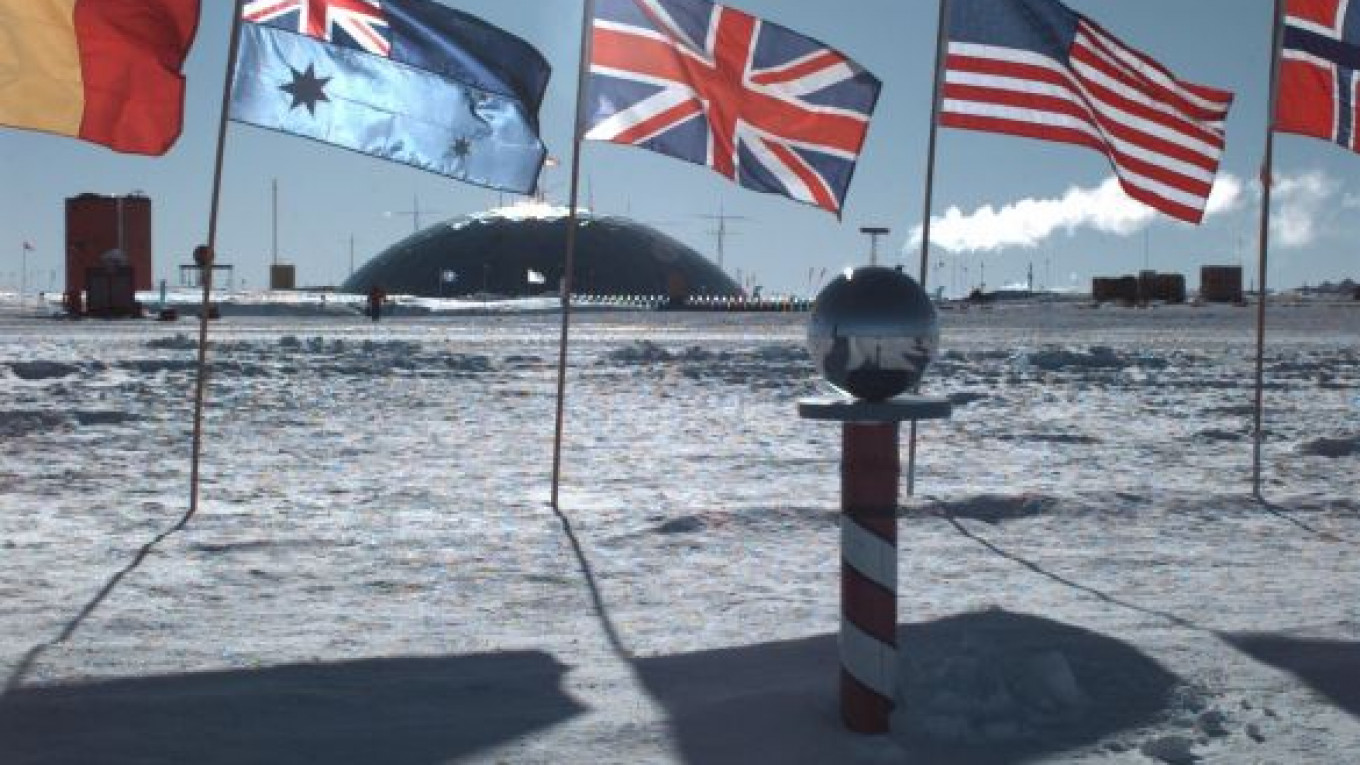Russia and Ukraine have blocked a proposal for creating an expansive marine wildlife reserve in the Antarctic because they contest the authority of the organizing commission, news reports said Wednesday.
The proposal, initiated by the United States and New Zealand, envisioned a 1.6 million square kilometer reserve in the Ross Sea, a deep Antarctic bay south of the Pacific Ocean.
Such a conservation area would equal about 70 percent of the amount of global ocean that is currently fully protected, The Pew Charitable Trusts foundation, which has backed the marine wildlife reserve effort, said in a press release Tuesday.
However, at a meeting of the Commission for the Conservation of Antarctic Marine Living Resources, of which Russia is a founding member, the country's delegation said further clarification was needed to determine whether the body was legally able to establish marine protected areas in the Ross Sea.
"After two years of preparation, including this meeting, which Russia requested to settle the scientific case for the Ross Sea and East Antarctic proposals, we leave with nothing," the director of the Antarctic Ocean Alliance, Steve Campbell, said in a statement.
U.S. Secretary of State John Kerry expressed regret that the commission was unable to reach agreement on establishing marine protected areas, including in the Ross Sea. Despite the setback, he noted that the majority of commission members "were able to find common ground," and there will be another chance to work out a plan to protect Antarctica.
While Russian officials did not comment Tuesday evening, a World Wildlife Fund representative told RIA Novosti that Russia opposed the plan because it would affect the nation's fishing industry.
However, other countries that currently fish in the proposed conservation areas, such as New Zealand and Australia, have backed the protection effort.
But, "I wouldn't call the situation hopeless," said Polina Zhbanova of WWF Russia, adding that Moscow was not opposed to the plan in principle, though it wanted to hammer out the details before making a commitment.
"[Russia] made some compromise proposals that balanced the country's interests and environmental needs, but other countries have to show willingness to compromise too," Zhbanova added.
Meanwhile, Australia, France and the European Union have also proposed delineating several other marine protected areas totaling 1.9 million square kilometers in the East Antarctic.
The organizing commission is next set to convene in October for an annual meeting in Australia, when a compromise solution is expected to be outlined, though not finalized, the Zhbanova said.
The idea of a new marine reserve in the Southern Ocean has been backed by celebrities, including film director James Cameron, Virgin Group tycoon Richard Branson, and environmentalist Jean-Michel Cousteau, son of the late ocean explorer Jacques Cousteau. They asked for President Vladimir Putin's support in an open letter last week, but got no reply from the Kremlin.
Scientists have said the ocean sanctuaries there would be ideal places to monitor climate change away from the influence of man, while conservations say the thriving colonies of seals and penguins should be left alone. However, several countries fear that the sanctuaries would have too much impact on their annual fishing haul.
Material from The Associated Press was used in this story.
A Message from The Moscow Times:
Dear readers,
We are facing unprecedented challenges. Russia's Prosecutor General's Office has designated The Moscow Times as an "undesirable" organization, criminalizing our work and putting our staff at risk of prosecution. This follows our earlier unjust labeling as a "foreign agent."
These actions are direct attempts to silence independent journalism in Russia. The authorities claim our work "discredits the decisions of the Russian leadership." We see things differently: we strive to provide accurate, unbiased reporting on Russia.
We, the journalists of The Moscow Times, refuse to be silenced. But to continue our work, we need your help.
Your support, no matter how small, makes a world of difference. If you can, please support us monthly starting from just $2. It's quick to set up, and every contribution makes a significant impact.
By supporting The Moscow Times, you're defending open, independent journalism in the face of repression. Thank you for standing with us.
Remind me later.






